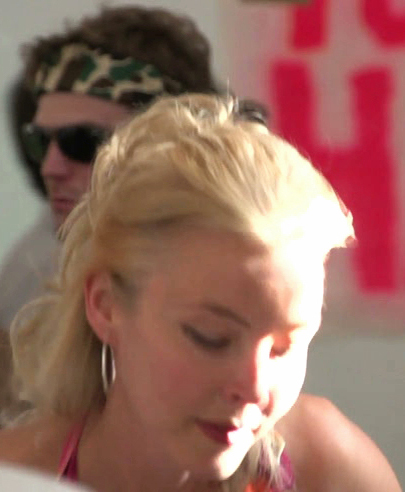lass="wwscontentsmaller">by Dare to do
At Harvard's Commencement exercises, it is oft noted that only a tenth of grads will enter communications, media, and the arts. You probably have heard how hard it is to make a living as a writer.
Some of these grads think they are the exception. On the occasion of their leap of faith, one wonders what becomes of writers after graduation.
What kinds of jobs, agents and publishing contracts do they find as they travel to the four corners of the American literary scene?
In the first corner, we have "the day job," anything from Charlotte Bronte's governess gig to Charles Bukowski's or Lawrence Durrell's civil servant Band-Aid. In life, there's the work that needs to be done, which incidentally, doesn't usually pay, and the work corporations want you to do to exploit humanity and the environment. That's usually the day job.
"It's depressing to admit that if I hadn't had (and didn't still have) a working husband with a steady job, the whole thing would not have been possible," says Sheila Connolly (Harvard GSA, '79), whose mystery Buried In a Bog recently hit #14 on the New York Times Bestseller list.
"It took five years from the 'aha! I shall write a book!' moment to signing a contract with a publisher, and another two years before the first book was published. Sure, I began making some money, but my net profit was in the low to mid four figures for several more years. It's been only in the past two years that I've made what I would consider a minimum living wage from writing alone. And in my genre, I'm considered one of the success stories!"
Author David Loftus (Harvard College, '81) tells people, "You know how Mark Twain said he never let his schooling get in the way of his education? Well, I try not to let my job get in the way of my WORK!"
Lately he has been supporting his writing habit with an acting habit as a Grimm series spook, or working as a Standardized Patient using improv to help train med students and hospital staff.
"When I was a heart patient, students not only had to listen to my heart and lungs through a stethoscope, but press their hands on various parts of my chest to search for pulsing in unfamiliar locations. If they do sense a throb in a place where there normally shouldn't be one, that's known in the trade as a 'thrill.' So there I was, with a series of pretty young med students touching my bare chest and saying, half to themselves, 'I'm not getting any thrills,' and I said to myself, 'Works for me, honey!'"
Loftus had already worked as a newspaper reporter, columnist, and reviewer for a small daily newspaper, and proofreader and editor for a small publishing house that enabled him to author a couple books.
In the second corner, luckily, is the Internet, which makes it possible to tune in to a worldwide literary dialogue. One of a few university-sponsored places where alumni literati of all ages from all over the world associate is the Harvard Alumni Association's most conversant listserv, the 747-member Harvard Writers and Publishers discussion group. Alumni writers also can be found in and around fresh alumni-driven organizations such as Harvardwood and its fiction publisher affiliate Harvard Square Editions. And Crimeds can keep in touch on the Crimson's Facebook page.
When I asked Wall Street Journal reporter and author of The Terror Courts, Jess Bravin (Harvard College, '87), if Crimeds get together in Washington and throw parties, he said, "You know, much as in college, I'm not cool enough to get invited to anything like that, but I'm in touch with them. Annie Nolan, for instance, was the Arts Editor on the Crimson, and she very nicely threw a little party for me when my book came out, and a number of people came to that who were also on the Crimson and other things around campus. These are people I've met through similar interests, but it hasn't been a kind of structured thing."
In the third corner is Harvard
itself, where a growing lack of support for the arts had prevailed until
recently. "There's a reason why President Faust made a push for the arts
at Harvard a few years ago: because they are typically also-rans at
Harvard," says former Harvard expos teacher Dr. Lowry Pei (Harvard
College, '67), author of seven novels.
"In particular," Pei says, "my sense is that
Harvard has historically been reluctant to get its hands dirty with the
actual doing of an art. You can't study music performance, for example.
There are creative writing courses, all right, but I would be very
surprised if the English Department, as a department, has any official
interest in career guidance for writers. It's typical in English departments for
there to be a great gulf between the literary theorists and the
creative writers--if creative writers are welcome at all. The usual
politics are that theory far outranks practice."
Now a professor at Simmons College, Pei leads faculty workshops as part of an initiative to have writing-intensive courses offered in all majors.
In the fourth corner are the victors of corporate mergers who have made writing harder by erecting barriers to entry. One ironic example is the market's degradation of today's authors who try to "self-publish," since it was authors themselves who started well-known publishing houses, including Virginia Woolf's Hogarth Press and Sir Walter Scott's co-financed Ballantyne, now both Random House imprints.
Similarly, it was an artist (lithographer) who started Bertelsmann, the German company that owns 100% of Random House. Random House's largest human stakeholder, Liz Mohn, owns 19.1 % of Bertelsmann, and serves both on its supervisory board and on the board of The Bertelsmann Foundation, which owns the other 80.9% of Bertelsmann. Her memoir is, arguably, self-published.
(Note: You can view every article as one long page if you sign up as an Advocate Member, or higher).






